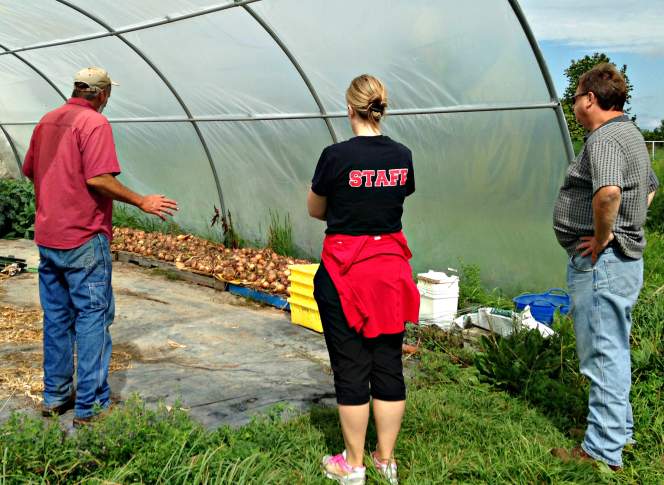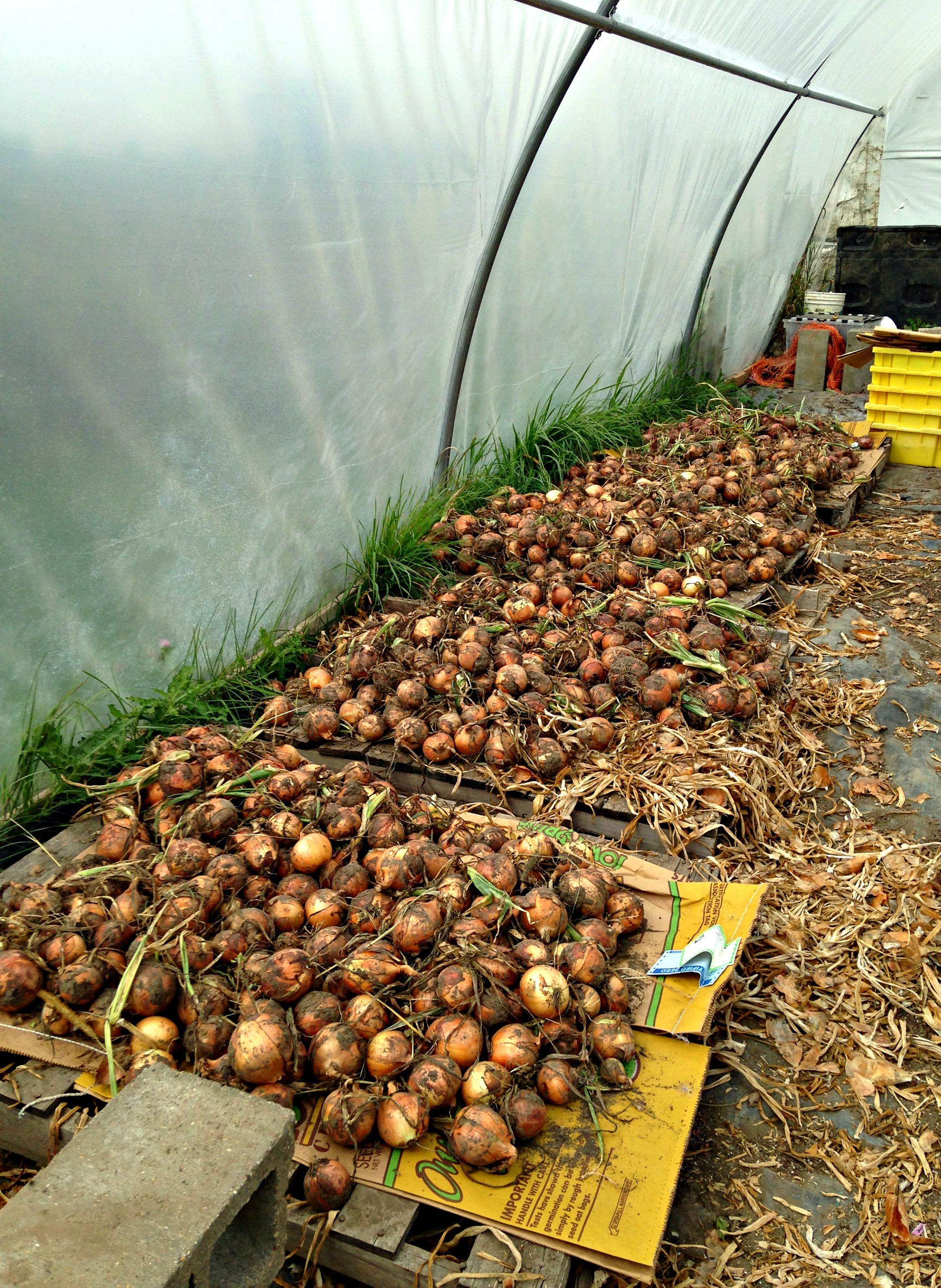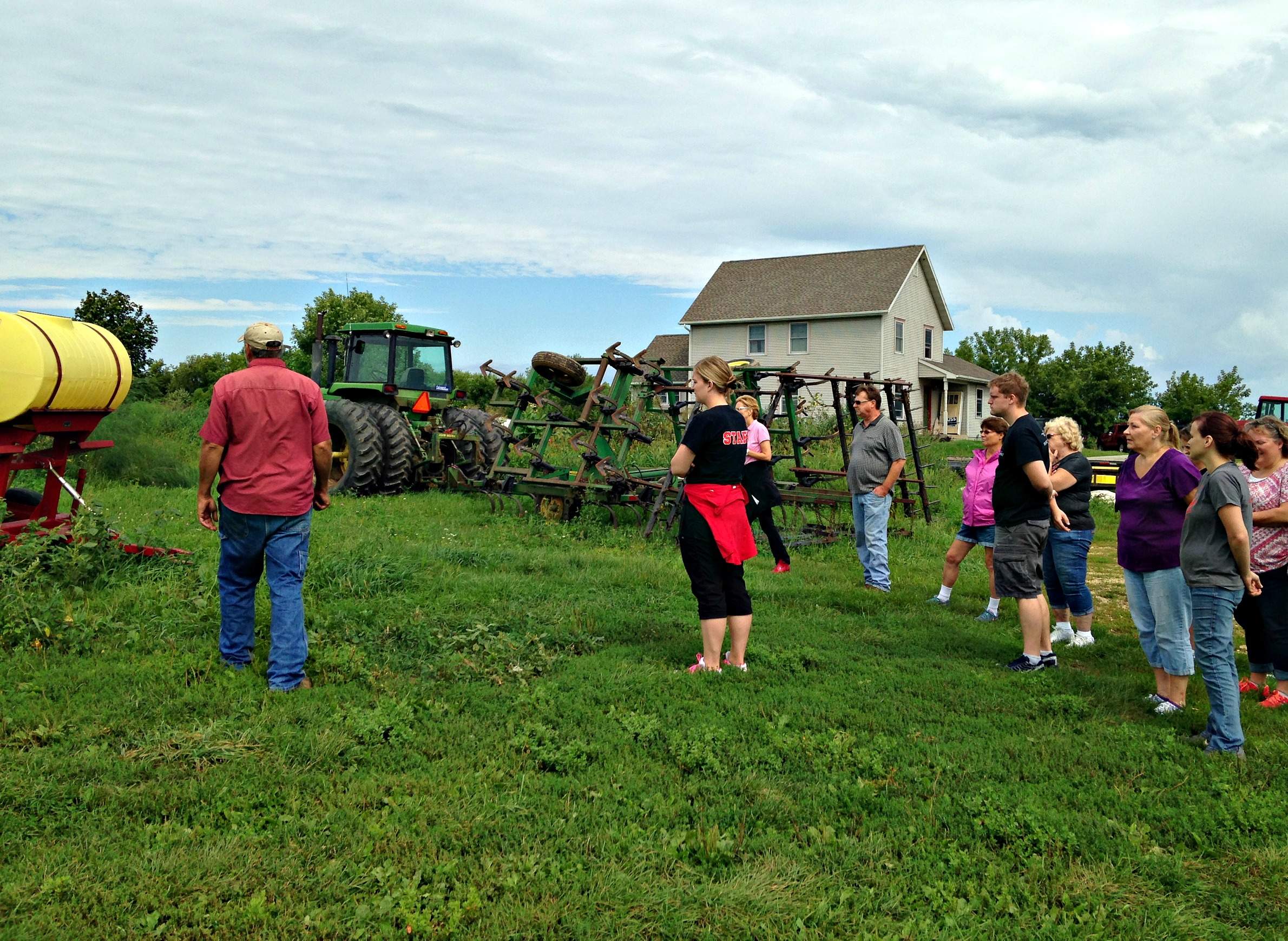How Farm To School Is Taking Root In Columbia County
What happens when more Wisconsin school districts collectively buy locally grown food? Students and staff benefit by eating nutritious and fresh meals.
November 10, 2016

School food service staff tour Emerald Meadows hoop house

What happens when more Wisconsin school districts collectively buy locally grown food? Students and staff benefit by eating nutritious and fresh meals.
When they use local food, schools have a smaller carbon footprint, and their dollars support nearby food growers and producers, in turn allowing community economies to grow. In 2014, local food sales in Columbia County contributed about $1.9 million to the economy, as noted in a University of Wisconsin-Extension fact sheet.
The Wisconsin Farm to School Program encourages healthy lifestyles in children and supports local economies through comprehensive programs combining local procurement efforts with nutrition and agricultural education. The program is mandated through 2009 WI Act 293, which supports school districts through grants and encourages them to develop farm-to-school programs that purchase Wisconsin-produced food and to provide educational tools that support these efforts.
One month into the 2016-17 school year, three south-central Wisconsin school districts — Columbus, Sauk Prairie and Wisconsin Dells — had purchased over 2,100 pounds of local food. That figure translates into $2,100 in sales. Students, teachers and staff in these districts have been served 14 freshly harvested vegetables and fruits, including slicing and cherry tomatoes, sweet peppers, sweet and red onions, garlic, beets, radishes, green beans, kohlrabi, sweet corn, cucumbers, melons and seedless watermelon.
Onions cure in a hoop house at Emerald Meadows Family Farm.

The collaboration started in January 2016, when University of Wisconsin-Extension Columbia County solicited proposals from more than 300 Wisconsin area food growers and producers to establish a program through which the three districts could procure more local food for the 2016-17 school year. Emerald Meadows Family Farm near Columbus, which grows a variety of vegetables and operates a community supported agriculture program, won the contract.
As part of launching its Farm to School procurement program, UW-Extension Columbia County arranged for 20 school district food service staff from Sauk Prairie and Wisconsin Dells to take a road trip in August to tour Emerald Meadows and learn how an organic farm operates. Organic farmers use an integrated agriculture system that strives for sustainability, the enhancement of soil fertility and biological diversity whilst, with rare exceptions, abstaining from synthetic pesticides, antibiotics, synthetic fertilizers, genetically modified organisms and growth hormones.
School staff met Emerald Meadow owners Becky and Tim Zander and their three full-time employees, and toured the farm’s fields, as well as the greenhouse and hoop houses used to extend its growing season. They learned about harvesting and planting equipment, curing and storage areas, and how a delivery truck with a cooling unit keeps produce fresh upon delivery to schools.

UW-Extension Columbia County has led the area’s Farm to School journey. After receiving a grant in 2012, it launched the program, worked with several county school districts and co-hosted monthly Harvest of the Month programs. These sessions emphasize the agricultural aspects of growing and harvesting local food, outline the nutritional and health benefits of eating locally, and give students, teachers and parents an opportunity to taste seasonal produce grown in Wisconsin.
In addition, school food service staff have participated in multiple trainings, including touring farms, visiting a produce auction, learning knife skills from a trained chef and practicing food preservation techniques.
These professional development opportunities for school staff help districts overcome challenges that serving local food can present. Newer school buildings often lack kitchens because districts have often used processed, packaged food purchased from large distributors that only needs to be unwrapped and heated, which also means food service staff often have limited experience in preparing and cooking. Moreover, school kitchens often lack walk-in and freezer space for storing food, and preparation and washing areas can be inadequate.
Through the commitment of a strong network of partners — schools, local growers and UW-Extension Columbia County’s Farm to School effort is connecting kids to healthy, local food and farmers to a new set of local customers.
Kathleen Haas is community development educator and associate professor with University of Wisconsin-Extension Columbia County.
 Passport
Passport











Follow Us